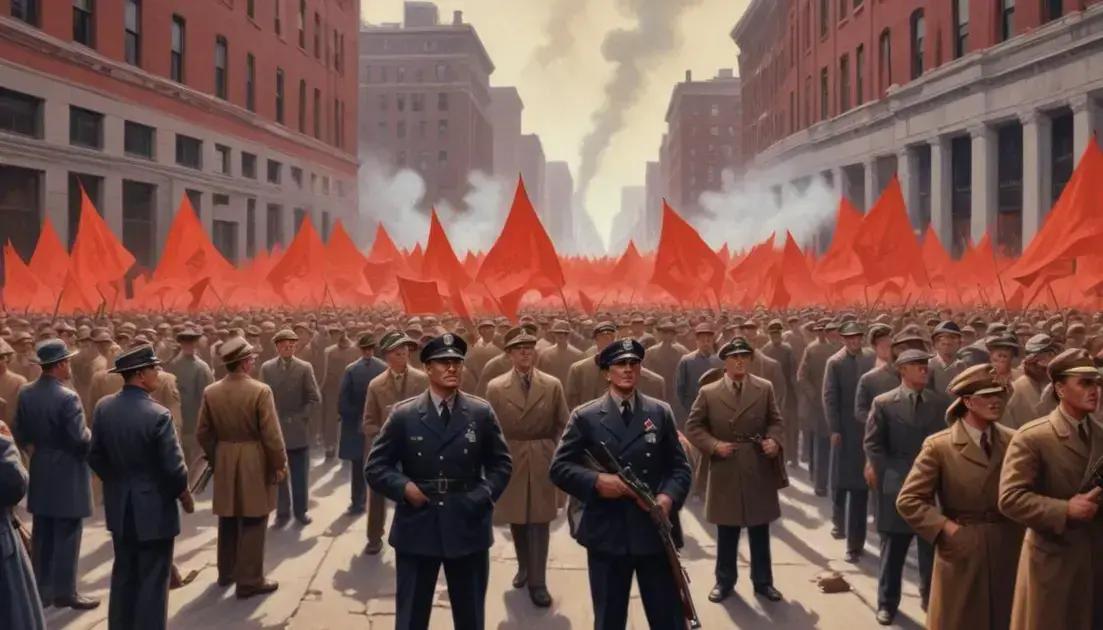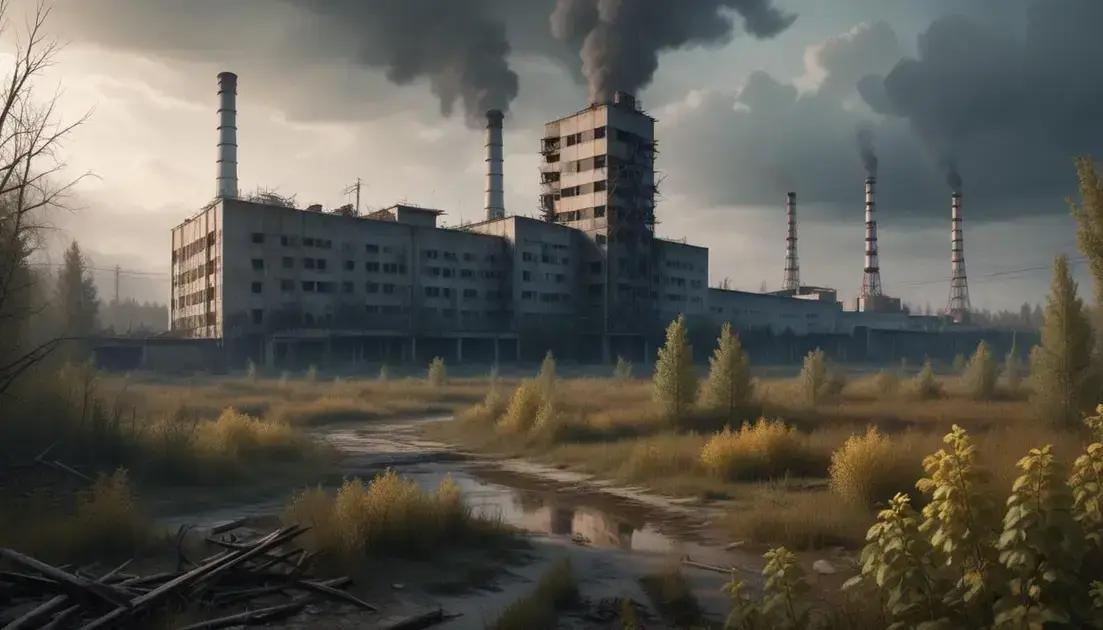
The secret scientists of the Cold War
The legacy of Cold War scientists includes groundbreaking advancements in science and technology that significantly shaped modern life. Their contributions to nuclear technology, computing, and space exploration have lasting impacts on various fields today. These scientists faced numerous challenges and ethical dilemmas, inspiring future generations while promoting responsible scientific practices. Their work continues to influence not only technological advancements but also the global conversation about the moral implications of scientific discovery.
Cold War scientists played a pivotal role in shaping the landscape of modern warfare and scientific discovery. Curious about their impact? Dive in!
Introduction to the Secret Scientists of the Cold War
During the Cold War, a group of secret scientists worked behind the scenes. Their discoveries weren’t just important; they changed everything about science and warfare. Have you ever wondered who these people were and what they did?
Many of these scientists were part of major projects that helped shape the future. They contributed to advancements in technology, from weapons to space exploration. Some were famous, while others stayed hidden in the shadows. Their teamwork was key to many breakthroughs.
Who Were These Scientists?
These scientists came from different backgrounds and places. Some worked for the government, while others were in academic institutions. Yet, they all shared a common goal: to stay ahead of the enemy. Imagine the pressure they faced to succeed!
Their Key Contributions
Their efforts led to many groundbreaking inventions. For example, they played a role in developing radar, nuclear technology, and communication systems. Each discovery not only had military applications but also helped civilians later on.
The knowledge gained during this time influenced our daily lives. It laid the groundwork for modern technologies we use today, like the internet and GPS. These scientific advancements form the backbone of our current tech-driven society.
A Look at Their Legacy
The legacy of these scientists goes beyond just inventions. Their work represents a significant period in history. They show how science can affect the balance of power globally. Understanding their contributions helps us appreciate where we are now and where we might be going in the future.
By exploring the stories of these fascinating individuals, we gain insights into the challenges and triumphs they faced. Their tales remind us of the vital role that science plays in our world.
Key Discoveries That Changed Modern Warfare
Many key discoveries during the Cold War dramatically changed modern warfare. These breakthroughs not only shaped battles but also influenced global politics. Think about radar technology, for instance. It became crucial for detecting enemy movements.
Another important discovery was nuclear technology. Scientists developed powerful weapons that could change the outcome of wars in an instant. Of course, this raised many ethical questions about their use.
Advancements in Communication
Effective communication is vital in warfare. Cold War scientists improved systems to relay information quickly. This allowed forces to coordinate better during conflicts. Innovations like secure phone lines and encrypted messages ensured that military strategies remained hidden from enemies.
Psychological Warfare Techniques
Psychological strategies also evolved, creating a new aspect of warfare. Scientists studied how to influence enemy forces and even the general public. Understanding how information spreads helped them mold opinions during critical moments.
Technological Innovations
Additionally, the Cold War saw advances in weaponry and support technologies. Drones and advanced missiles emerged during this time, demonstrating how far technology can go. These innovations not only changed the battlefield but also set the stage for future military conflicts.
These discoveries reflect a combination of fear, creativity, and necessity. They show how science and warfare are deeply connected. The legacy of these advancements continues to shape military practices today.
Personal Stories and Contributions
Personal stories of scientists from the Cold War era reveal much about their contributions. Each scientist faced unique challenges and made noteworthy impacts. For example, consider the story of one physicist who worked on radar technology. He devoted long hours in a lab, hoping to help his country.
Another scientist focused on atomic research. He was deeply aware of the moral implications of his work. Many nights, he debated whether his discoveries would bring safety or destruction. His commitment to finding safe uses of nuclear power was inspiring.
Collaboration and Teamwork
Collaboration played a key role in these scientists’ success. They often worked together in teams, combining their knowledge. This teamwork led to breakthroughs that changed warfare and science forever. Diverse backgrounds enriched their research and problem-solving approaches.
Women in Science
Women also made significant contributions during this time. Many of them worked as mathematicians and engineers. Despite facing obstacles, their work was crucial. They helped calculate ballistic trajectories and design complex systems.
These personal stories show that science isn’t just about facts and data. It’s about people, their dreams, and their fears. Each contribution adds to the tapestry of our modern world. Their efforts continue to influence us today.
Lasting Impact on Science and Technology
The innovations from the Cold War have had a lasting impact on science and technology. Many advancements we rely on today were born from this intense period. For example, the development of satellite technology changed how we communicate and gather data.
Another significant impact was in the field of computing. During the Cold War, scientists created early computers to help with military needs. Today, we use similar technology for everyday tasks like browsing the internet and managing our work.
The Rise of the Internet
The foundation for the internet also traces back to this era. Military needs drove the creation of networks that later evolved into what we now know as the World Wide Web. This has dramatically changed how we connect and share information globally.
Medical Advances
Medical technology saw improvements as well. Cold War research led to advancements in imaging technologies like MRI and CT scans. These tools are essential for diagnosing and treating health issues today.
Additionally, the Cold War spurred growth in fields like space exploration. The space race pushed boundaries, resulting in achievements like moon landings. These efforts not only expanded our knowledge but also inspired future generations of scientists.
In essence, the contributions from this time were not just military. They played a role in our daily lives, shaping how we live today. The effects of these advancements continue to unfold even now.
The Legacy of Cold War Scientists
The legacy of Cold War scientists is deep and lasting. Their work changed science, technology, and global politics. Many breakthroughs during this time shaped our world today. These scientists faced unique challenges and made sacrifices for their research.
One major aspect of their legacy is the advancement of nuclear technology. Their research helped in creating nuclear power sources. This significant discovery has both benefits and risks, highlighting the need for responsible use.
Influence on Modern Science
The methods and techniques developed during the Cold War influenced various scientific fields. Many principles from that era still guide research in physics, biology, and engineering today. Scientists continue to build on the foundations laid by their predecessors.
Inspiration for Future Generations
Furthermore, the stories of these scientists inspire new generations. Young people now find excitement in STEM fields because of their bold contributions. Their dedication showcases the importance of science in solving global challenges.
Moreover, many Cold War scientists became advocates for peace. They realized the power of their discoveries and promoted safe uses of technology. Their voices contributed to important discussions about ethics in science.
Overall, the legacy is not just about inventions and discoveries. It’s about human stories, moral choices, and the quest for knowledge. The impact of these scientists continues to resonate in contemporary society.
Conclusion
In conclusion, the work of Cold War scientists left a significant mark on our world. Their discoveries shaped many aspects of modern life, from technology to ethics in science. By understanding their contributions, we can appreciate how science has evolved and impacted society.
These scientists faced great challenges and made important choices. Their dedication inspires future generations to pursue careers in science and technology. Their legacy teaches us about the balance of innovation and responsibility, showing that with great power comes great responsibility.
As we continue to advance in science and technology, we must remember the lessons from the past. The legacy of these scientists reminds us to strive for knowledge while considering the implications of our discoveries. Ultimately, their stories encourage us to make informed choices for a better future.


